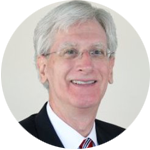
John Foust, advertising
John Foust has conducted training programs for thousands of newspaper advertising professionals. Many ad departments are using his training videos to save time and get quick results from in-house training.
Email for information: john@johnfoust.com
![]()
In 1990, Elizabeth Newton, a graduate student in psychology at Stanford University, conducted an experiment to measure knowledge and familiarity. One group “tapped” popular songs with their fingers, and another group tried to identify the tunes. When the tappers were asked to predict the number of tunes that would be correctly named, they consistently overestimated. The tappers predicted the listeners would have a 50 percent success rate, but the listeners named only 2.5 percent correctly. That’s a huge gap.
That illustrates what some people call the Curse of Knowledge. Once we know something – even something as simple as the melody of a song – it’s difficult to imagine not knowing it. As a result, it can be a big challenge to get in step with someone else when dealing with that topic. It’s nearly impossible to teach algebra to someone who doesn’t know algebra if you don’t remember what it was like not to know algebra.
Curse of Knowledge is a big factor in the world of sales. I recently shopped for a computer at a store where I had bought electronic equipment before. Unfortunately, I got stuck with a salesman who assumed that everyone knew as much about computers as he did. I repeatedly asked him to simplify his explanations, but he wasn’t capable of seeing things from a non-tech’s point of view. It was impossible for me suddenly to gain enough knowledge to understand what he was talking about, and it was impossible for him to remember what it was like not to know as much as he knew. The experience was frustrating for both of us, and I eventually had to find someone else to help me.
The business people in your market have varied ranges of ad knowledge – from highly informed to neophyte. Like the old saying, “If you’re treating all of them the same, you’re treating most of them wrong.” Here are some points to keep in mind:
1. Learn as much as you can. It should be your goal to know more about advertising in general, more about your specific advertising product, and more about each one of your clients and prospects than anyone else in your area. That will give you plenty of reserve power.
2. Listen carefully to find out how much your prospect knows. A sales appointment is not a performance. It’s an opportunity to get in step with your prospect, so you can tailor the conversation to his or her specific marketing needs – in terms that are clearly understood.
3. Don’t assume that you’re being understood, just because the other person isn’t saying anything. He or she might be bored, or might feel unsure in his or her lack of knowledge.
4. Develop a variety of ways to explain advertising concepts. The good news is that you can prepare explanations and examples in advance. Some should be basic and some should be advanced. And some can be used with all levels.
You see, it’s not just what you know about advertising. It’s what you know about communication.
